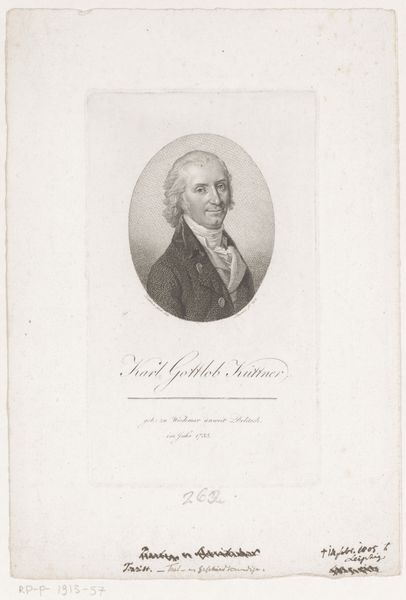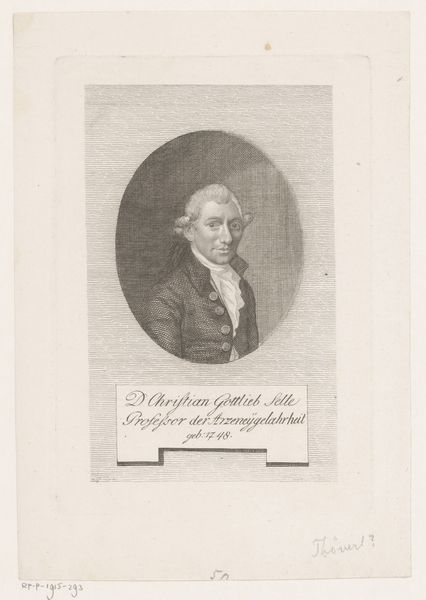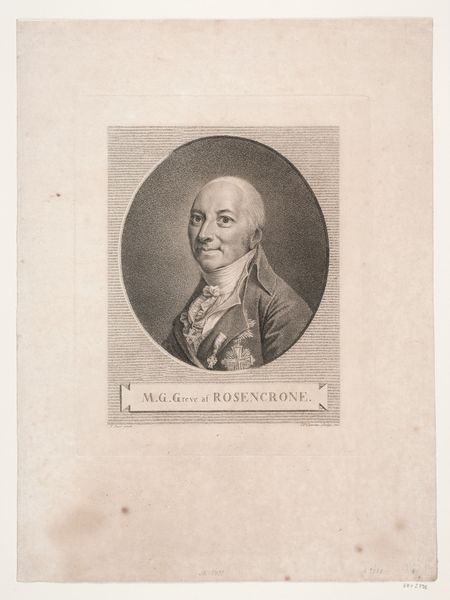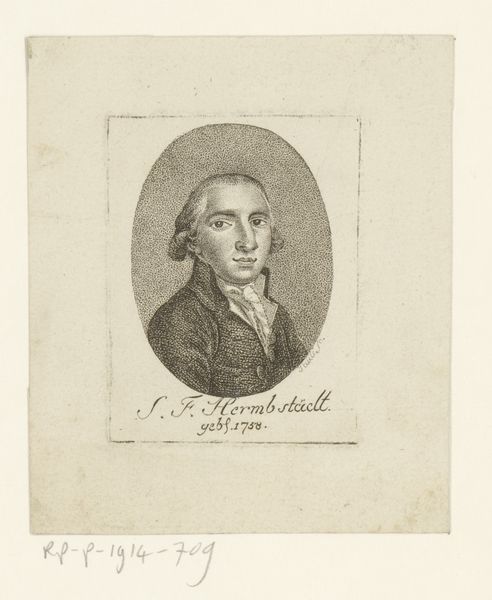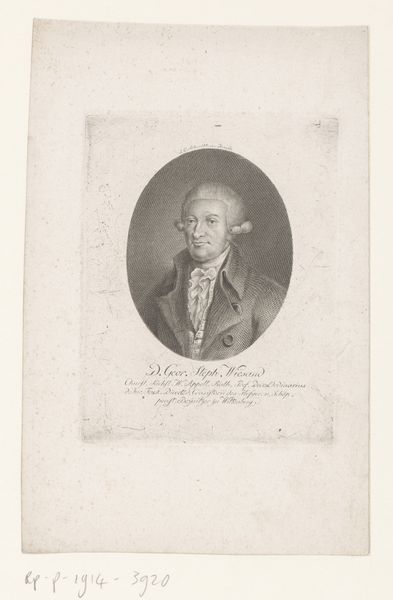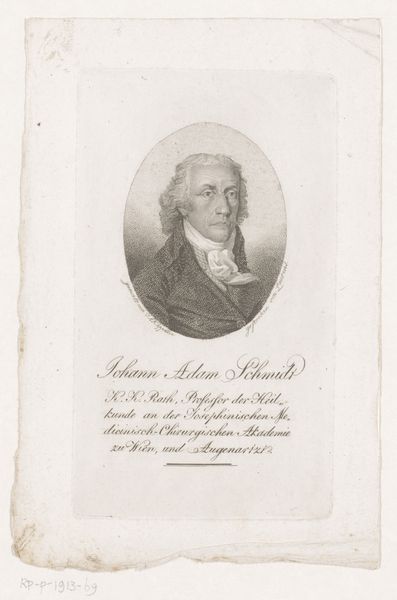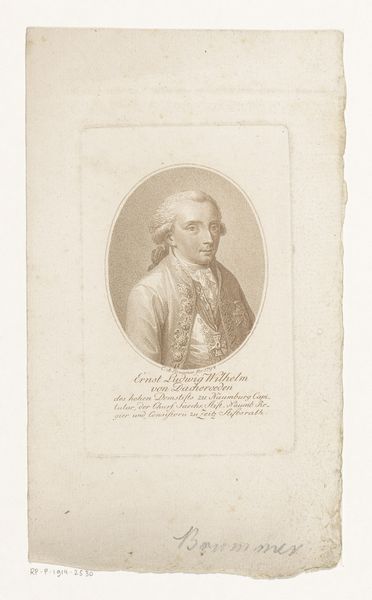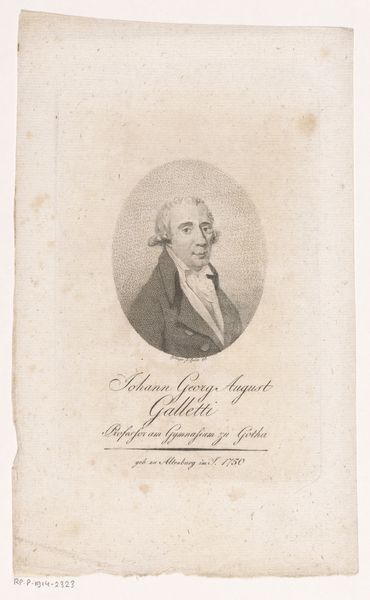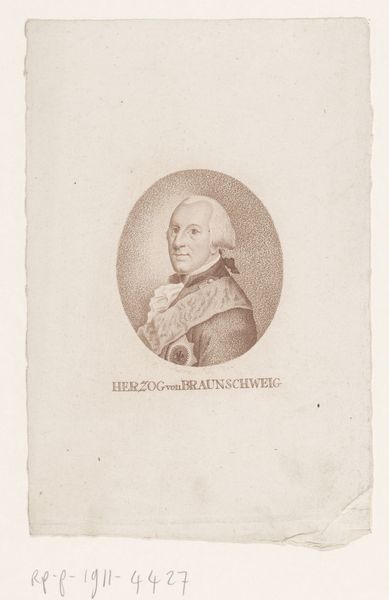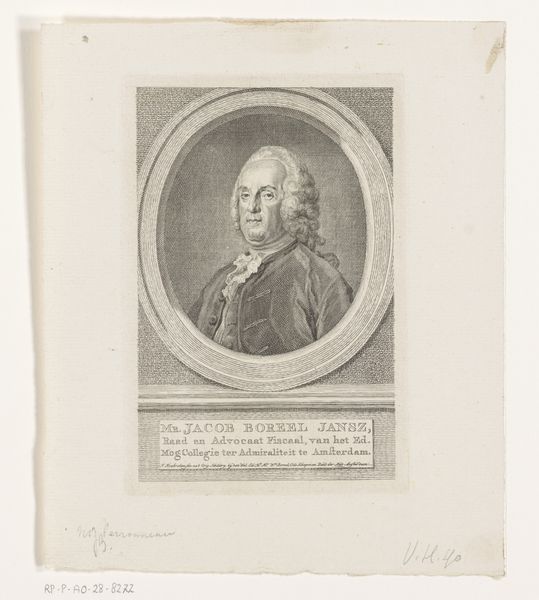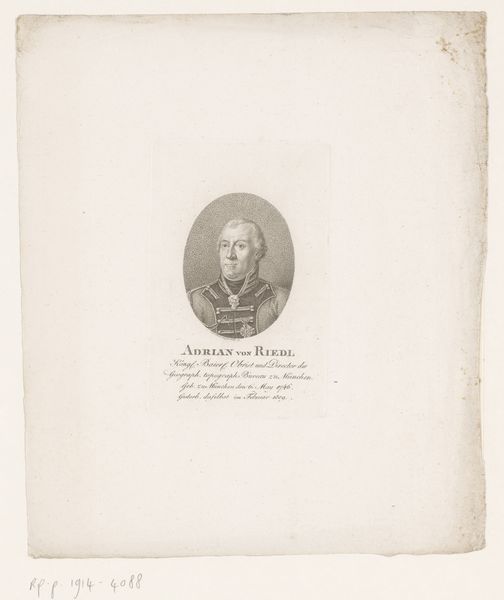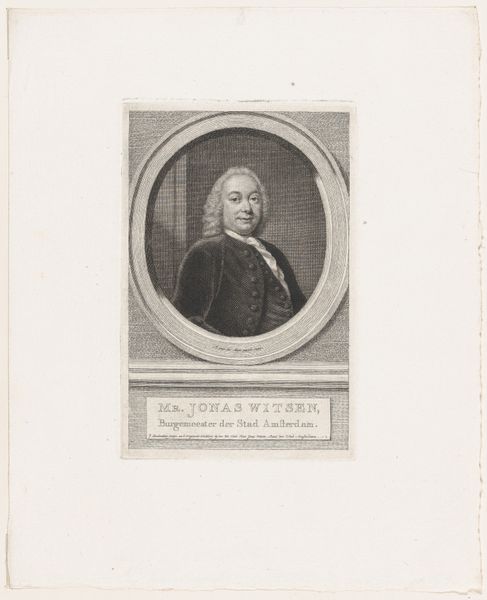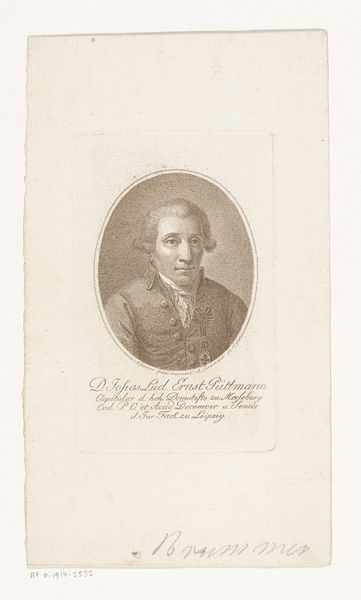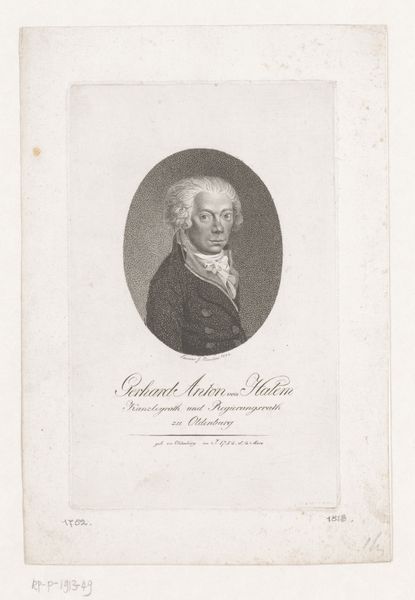
print, paper, engraving
#
pencil drawn
#
neoclacissism
# print
#
pencil sketch
#
old engraving style
#
paper
#
engraving
Dimensions: height 150 mm, width 99 mm
Copyright: Rijks Museum: Open Domain
Curator: Looking at this, I immediately sense a formality, an almost icy precision. The man in the engraving stares out with an air of unflinching seriousness. Does it strike you the same way? Editor: It does. This is a Neoclassical portrait, created in 1802 by Johann Daniel (II) Laurenz. The engraving, titled *Portret van Karl Kaspar von Siebold*, showcases the good doctor in that very composed manner you noticed. The whole Neoclassical movement favored this sort of cool rationality, in artistic depictions as much as philosophical thinking. Curator: That rationality almost feels oppressive here, though! Look at the tiny, precise lines, the calculated shading. It’s as if even the shadows are in perfect order. Do you think it reflects the subject's profession? Editor: Almost certainly. Von Siebold was a prominent physician, a professor of anatomy and surgery in Würzburg. These engravings served a very public purpose; they were tools of reputation, reinforcing the sitter's authority and status. You see these a lot. The image had to convey intellect and importance, not just a likeness. Curator: It's interesting to think of an artwork functioning as branding, basically. And it seems so different from how we perceive portraits now, where personality trumps all! Here, even the pose is so stiff, so deliberate. One gets little sense of him as a person beyond his titles and social role. Editor: That’s a great point. This kind of image aimed to contribute to a wider cultural project: creating lasting impressions of important people, defining what constitutes a figure worthy of respect in society. Curator: Which in this case includes really good posture and perfect little wig curls. It really makes me wonder about the people behind these historically constructed facades. Editor: It's also worthwhile to note the materials, the engraving printed on paper. The print medium itself democratized image making. While an original painted portrait was quite exclusive, engravings allowed for wider circulation of likeness and of status. Curator: Fascinating. A frozen moment, manufactured for public consumption, and now we have a window into not just one man, but a whole set of social expectations! Editor: Precisely. And considering he specialized in obstetrics, one wonders what he'd make of our very open, expressive, dare I say chaotic age of image-making? Curator: I shudder to think.
Comments
No comments
Be the first to comment and join the conversation on the ultimate creative platform.
